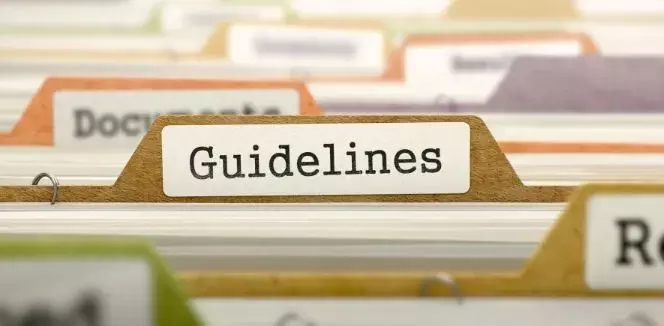- Home
- Medical news & Guidelines
- Anesthesiology
- Cardiology and CTVS
- Critical Care
- Dentistry
- Dermatology
- Diabetes and Endocrinology
- ENT
- Gastroenterology
- Medicine
- Nephrology
- Neurology
- Obstretics-Gynaecology
- Oncology
- Ophthalmology
- Orthopaedics
- Pediatrics-Neonatology
- Psychiatry
- Pulmonology
- Radiology
- Surgery
- Urology
- Laboratory Medicine
- Diet
- Nursing
- Paramedical
- Physiotherapy
- Health news
- Fact Check
- Bone Health Fact Check
- Brain Health Fact Check
- Cancer Related Fact Check
- Child Care Fact Check
- Dental and oral health fact check
- Diabetes and metabolic health fact check
- Diet and Nutrition Fact Check
- Eye and ENT Care Fact Check
- Fitness fact check
- Gut health fact check
- Heart health fact check
- Kidney health fact check
- Medical education fact check
- Men's health fact check
- Respiratory fact check
- Skin and hair care fact check
- Vaccine and Immunization fact check
- Women's health fact check
- AYUSH
- State News
- Andaman and Nicobar Islands
- Andhra Pradesh
- Arunachal Pradesh
- Assam
- Bihar
- Chandigarh
- Chattisgarh
- Dadra and Nagar Haveli
- Daman and Diu
- Delhi
- Goa
- Gujarat
- Haryana
- Himachal Pradesh
- Jammu & Kashmir
- Jharkhand
- Karnataka
- Kerala
- Ladakh
- Lakshadweep
- Madhya Pradesh
- Maharashtra
- Manipur
- Meghalaya
- Mizoram
- Nagaland
- Odisha
- Puducherry
- Punjab
- Rajasthan
- Sikkim
- Tamil Nadu
- Telangana
- Tripura
- Uttar Pradesh
- Uttrakhand
- West Bengal
- Medical Education
- Industry
Pharmacological support in early motor rehabilitation after acute ischaemic stroke : EAN and ENFS guidelines

New updated guidelines on pharmacological support in early motor rehabilitation after acute ischaemic stroke have been released by European Academy of Neurology and European Federation of Neurorehabilitation Societies, which have been published in European Journal Of Neurology .
Early pharmacological support for post-stroke neurorehabilitation has seen an abundance of mixed results from clinical trials, leaving practitioners at a loss regarding the best options to improve patient outcomes. The objective of this evidence-based guideline is to support clinical decision-making of healthcare professionals involved in the recovery of stroke survivors.
This guideline was developed using the Grading of Recommendations, Assessment, Development and Evaluation (GRADE) framework. PubMed, Cochrane Library and Embase were searched (from database inception to June 2018, inclusive) to identify studies on pharmacological interventions for stroke rehabilitation initiated in the first 7 days (inclusive) after stroke, which were delivered together with neurorehabilitation
The recommendations are as follows.
- A weak recommendation against amphetamine for patients in early motor neurorehabilitation is given(Based on low quality of evidence and the observed inferiority for the secondary critical outcome).
- A weak recommendation for cerebrolysin (30 ml, intravenous, minimum 10 days) is given for early motor neurorehabilitation after moderate–severe ischaemic stroke (Based on low and high quality of evidence across primary and secondary critical outcomes.)
- A weak recommendation against citalopram 10 mg is given for early motor neurorehabilitation after acute ischaemic stroke.( Based on low quality of evidence and missing estimates on patients with SAEs.)
- A weak recommendation for citalopram 20 mg is given for early motor neurorehabilitation after acute ischaemic stroke.( Based on moderate quality of evidence for beneficial effects in the critical outcomes)
- A weak recommendation against dextroamphetamine is given for early motor neurorehabilitation after acute ischaemic stroke.( Based on low quality of evidence and no effect on critical outcomes)
- A weak recommendation against DHYZ is given for early motor neurorehabilitation after acute ischaemic stroke.( Based on low-quality evidence for negative effects on the primary critical outcome and moderate quality of evidence for beneficial effects on the secondary critical outcome)
- A weak recommendation against fluoxetine for early motor neurorehabilitation after acute ischaemic stroke was given.
- Based on low-quality evidence for beneficial effects, a weak recommendation against lithium is given for patients in early motor neurorehabilitation.
- Based on low quality of evidence, negligible intervention effect and lack of evidence for the primary critical outcome, a weak recommendation against MLC601 is given for early motor neurorehabilitation in patients after acute ischaemic stroke.
- Based on low-quality evidence, a weak recommendation against PF-03049432 is given for patients in early motor neurorehabilitation.
- No recommendation is made for or against selegiline for neurorehabilitation after acute ischaemic stroke, as this would be speculative given current available evidence.
"Promising advances in basic science also bring new opportunities to study the pharmacological enhancement of post-stroke neurorehabilitation . As new research emerges, this guideline aims to inform clinicians regarding existing pharmacological support in interventions for neurorecovery after acute ischaemic stroke. Updates to this material will potentially elucidate existing conundrums, improve current recommendations, and hopefully expand therapeutic options for stroke survivors."the expert panel concluded.
For full article follow the link: https://doi.org/10.1111/ene.14936
Source : European Journal Of Neurology
Dr Satabdi Saha (BDS, MDS) is a practicing pediatric dentist with a keen interest in new medical researches and updates. She has completed her BDS from North Bengal Dental College ,Darjeeling. Then she went on to secure an ALL INDIA NEET PG rank and completed her MDS from the first dental college in the country – Dr R. Ahmed Dental College and Hospital. She is currently attached to The Marwari Relief Society Hospital as a consultant along with private practice of 2 years. She has published scientific papers in national and international journals. Her strong passion of sharing knowledge with the medical fraternity has motivated her to be a part of Medical Dialogues.
Dr Kamal Kant Kohli-MBBS, DTCD- a chest specialist with more than 30 years of practice and a flair for writing clinical articles, Dr Kamal Kant Kohli joined Medical Dialogues as a Chief Editor of Medical News. Besides writing articles, as an editor, he proofreads and verifies all the medical content published on Medical Dialogues including those coming from journals, studies,medical conferences,guidelines etc. Email: drkohli@medicaldialogues.in. Contact no. 011-43720751


